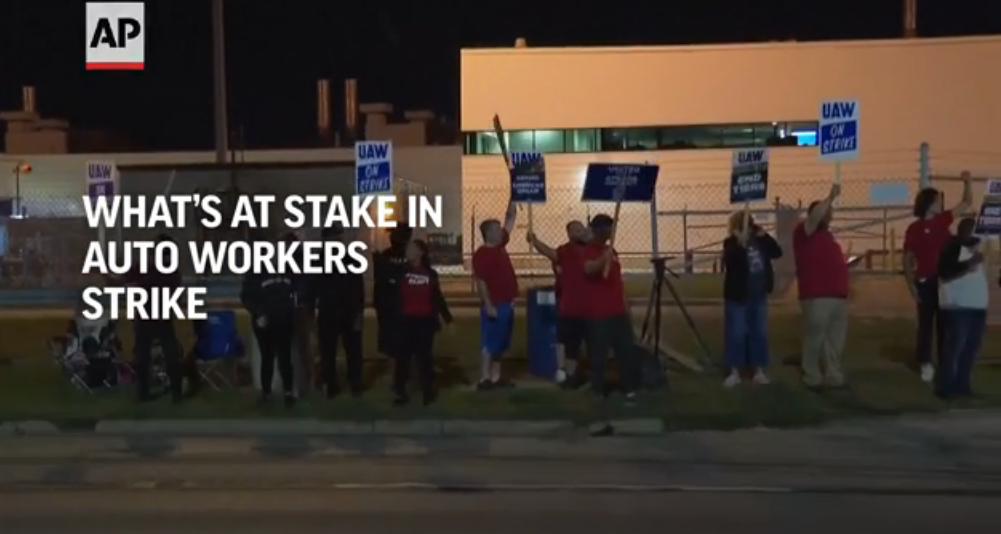What’s at stake as 13,000 workers go on strike at major US auto makers

DETROIT (AP) — About 13,000 auto workers have walked off the job at three targeted factories after their union leaders couldn’t reach a deal with Detroit’s automakers.
DETROIT (AP) — About 13,000 auto workers have walked off the job at three targeted factories after their union leaders couldn’t reach a deal with Detroit’s automakers.
The United Auto Workers union is seeking big raises and better benefits from General Motors, Ford and Stellantis. They want to get back concessions that the workers made years ago, when the companies were in financial trouble.
A small percentage of the union’s 146,000 members walked off the job at a GM assembly plant in Wentzville, Missouri; a Ford factory in Wayne, Michigan, near Detroit; and a Stellantis Jeep plant in Toledo, Ohio, at 11:59 p.m. Eastern time on Thursday. Shawn Fain, the combative president of the UAW, says the targeted strikes will give the union leverage in contract talks and keep the auto companies guessing about its next move. It could also make the union’s $825 million strike fund last much longer.
Both sides began exchanging wage and benefit proposals last week. Though some incremental progress appears to have been made — General Motors made a new, richer offer just hours before the strike deadline — it was not enough to avoid walkouts. The strike could cause significant disruptions to auto production in the United States.
Here’s a rundown of the issues standing in the way of new contract agreements and what consumers could face in a prolonged strike:
The union is asking for 36% raises in general pay over four years — a top-scale assembly plant worker gets about $32 an hour now. In addition, the UAW has demanded an end to varying tiers of wages for factory jobs; a 32-hour week with 40 hours of pay; the restoration of traditional defined-benefit pensions for new hires who now receive only 401(k)-style retirement plans; and a return of cost-of-living pay raises, among other benefits.
Perhaps most important to the union is that it be allowed to represent workers at 10 electric vehicle battery factories, most of which are being built by joint ventures between automakers and South Korean battery makers. The union wants those plants to receive top UAW wages. In part that’s because workers who now make components for internal combustion engines will need a place to work as the industry transitions to EVs. Currently, UAW workers hired after 2007 don’t receive defined-benefit pensions. Their health benefits are also less generous. For years, the union gave up general pay raises and lost cost-of-living wage increases to help the companies control costs. Though top-scale assembly workers earn $32.32 an hour, temporary workers start at just under $17. Still, full-time workers have received profit-sharing checks ranging this year from $9,716 at Ford to $14,760 at Stellantis.
Fain himself has acknowledged that the union’s demands are “audacious.” But he contends that the richly profitable automakers can afford to raise workers’ pay significantly to make up for what the union gave up to help the companies withstand the 2007-2009 financial crisis and the Great Recession.
Over the past decade, the Detroit Three have emerged as robust profit-makers. They’ve collectively posted net income of $164 billion, $20 billion of it this year. The CEOs of all three major automakers earn multiple millions in annual compensation.